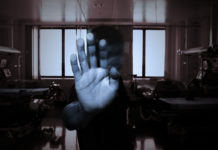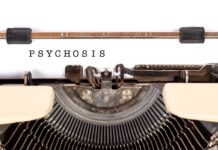Committed at 16: Memories of a State Hospital
While most of the sting is gone, even now — almost sixty years on — I can’t get through a single day without thinking about shock treatment and the state hospital. I regularly have dreams or nightmares about being lost in a strange place and someone making me feel like dirt.
The Role of Racial Bias in the Overdiagnosis of Schizophrenia
Researchers detect disparity between white and African American patients diagnosed with schizophrenia when symptoms of a mood disorder are present.
Psychiatrists’ Prescriptions for First-time Psychosis Often Don’t Follow Guidelines
"Many patients with first-episode psychosis receive medications that do not comply with recommended guidelines for first-episode treatment," states a National Institute of Mental Health...
Are You Ready for Multiple Lawsuits By Victims of Psychiatric Misconduct?
Professor Leigh Turner of the University of Minnesota Center for Bioethics blasts the Board of Regents for ignoring psychiatric research abuse.
20-Year Data Show Antipsychotics Do Not Reduce Psychosis
Martin Harrow's study tracing the effects of antipsychotics on 139 schizophrenia (SZ) and mood-disordered patients over 20 years, just published in Psychological Medicine, finds...
J&J Settles With Montana for $5.9M in Risperdal Marketing Lawsuit
Subsidiaries of Johnson & Johnson have agreed to pay $5.9 million to settle Montana's lawsuit over the company's fraudulent marketing of Risperdal. According to...
Group Mindfulness Shows Promise Reducing Depression Associated with Hearing Voices
A new study out of Kings College London found that twelve sessions of a group mindfulness-based therapy relieved distress associated with hearing voices while reducing depression over the long-term. The person-based cognitive therapy (PBCT) intervention had significant effects on depression, voice distress, voice controllability and overall recovery.
Confusion Over Antipsychotic Dosing Data in RAISE Study
Yesterday, the New York Times reported that schizophrenia patients in an experimental treatment program (RAISE) who experienced better outcomes had been on lower doses of antipsychotics than normal. However, the article published in the American Journal of Psychiatry on Tuesday did not divulge any data on the varying antipsychotic drug doses in the different study groups.
The Legal and Moral Issues of Drugging Children
Jim Gottstein’s presentation March 29, 2012 at the APA’s Humanistic Division. Mr. Gottstein talks about the the legal and moral issues of the massive number...
How Can We Build a Better Evidence Base for Treating Psychosis with Therapy?
-A commentary suggests that the evidence to support the use of cognitive behavioral therapy for psychosis is tenuous, in part because CBT itself is so variable.
De-Othering “Schizophrenia” by Placing it in Socio-Historical Context
Understanding schizophrenia as a non-enigmatic, understandable human experience goes against a history of institutional “othering” that has sustained psychiatric legitimacy and further marginalized service-users.
Hearing Voices Network Responds to Susan Inman HuffPo Piece
On Saturday morning, Susan Inman, writing for HuffPost Canada, published “What You’re not Hearing About the Hearing Voices Movement.” In it, she criticizes HVM for “failing to differentiate between the needs of people who actually have psychotic disorders and those who don't.” On Sunday the Bay Area Hearing Voices Network published an open letter in response, writing: “Ms. Inman has profoundly mischaracterized hearing voices networks (HVNs) and also demonstrates a troubling lack of understanding of the empirical literature on psychosis, optimal psychosocial intervention and recovery.”
The Ethical Challenges of Early Intervention in Psychosis
-Columbia University psychiatrist Paul Applebaum reviews the challenges of intervening early in psychosis before symptoms emerge, and of doing so in an ethically responsible manner.
“Social Factors Influence Schizophrenia?”
PsychCentral covers new research linking social deprivation, population density and inequality with higher rates of psychotic symptoms and diagnoses for schizophrenia. “This is important because other research has shown that many health and social outcomes also tend to be optimal when societies are more equal.”
Psychiatric Teams Have a Responsibility to Think About the Psychosis/Sexual Abuse Link
In England, childhood sexual abuse (CSA) has become big news. The increasing understanding of the level of childhood sexual abuse and how this produces mental anguish has of course reached the psychosis arena, and encouraged academic study. Whilst the majority of psychiatrists continue to privilege a biological explanation of psychosis, more and more workers recognise abuse as at least a trigger if not a cause of psychosis. It's important to develop thinking points for teams struggling with, or more generally avoiding, the CSA/psychosis link.
Study Suggests Mania More Common in Psychosis When Antidepressants Used
A prospective cohort study of those labeled high risk for psychosis finds a higher prevalence of antidepressant use among those who develop manic symptoms.
The Real Myth of the Schizophrenogenic Mother
Acknowledging the role of trauma inflicted by a given individual’s mother is not the same as laying all blame for “mental illness” at the feet of motherhood. Meanwhile, a mountain of evidence has accumulated linking schizophrenia to sexual, physical, and emotional abuse and many other categories of adverse childhood experiences.
“What Are Delusions – And How Best Can We Treat Them?”
For The Conversation, psychologist John Done, from the University of Hertfordshire, explains his approach to discussing delusions with his patients. Done recommends more qualitative...
New Study Examines Successful Discontinuation of Antipsychotics
A new study to be published in the next issue of Schizophrenia Research examines patients suffering from a first-episode of psychosis who stop taking any antipsychotic drugs. The researchers attempt to identify variables that can serve as predictors of the successful discontinuation of antipsychotics. They find, for example, that those who discontinue the drugs have, on average, the same outcomes as those who stay on them, and that those who have better social integration are more likely to discontinue without relapse.
Increased Risk of Movement Disorders From Antipsychotics in Persons with Intellectual Disabilities
Large cohort study demonstrates that those with an intellectual disability are at an increased risk for movement disorder side effects of antipsychotics.
Enjoying the Road Less Traveled
The people that my son and I continued to consult with over the years didn't talk of mental illness as a brain disease, a chemical imbalance, or a problem with one's genes. Depending on the therapy, they spoke in terms of restoring life force energy, changing cellular vibration, learning to listen and understand, and building a self.
Study Suggests Long-Term Antipsychotic Use May Result in Poorer Cognitive Functioning
Association found between long-term antipsychotic use and poorer performance on cognitive tasks in adults diagnosed with ‘schizophrenia.’
Questions About Childhood Trauma And Schizophrenia Settled
In the first analysis of 30 years of studies, including 46 studies (selected from 27,000) involving 80,000 subjects, researchers in the U.K. and Australia...
Zel Dolinsky: I Have a Right to “Death With Dignity”
Researcher Zel Dolinsky once taught at medical school and worked as a medical writer in the pharmaceutical industry. In his last emails, he told of how the adverse effects of psychiatric drugs led him to choose to end his life.
Over Ten Thousand Unfiled Claims Against Risperdal Over Breast Growth in Young Boys
Johnson & Johnson is exposed to personal injury and product liability lawsuits over the failure to warn about Risperdal gynecomastia side effects in boys.



















